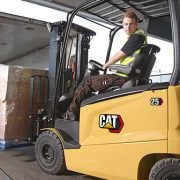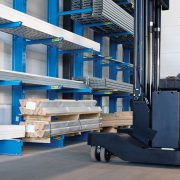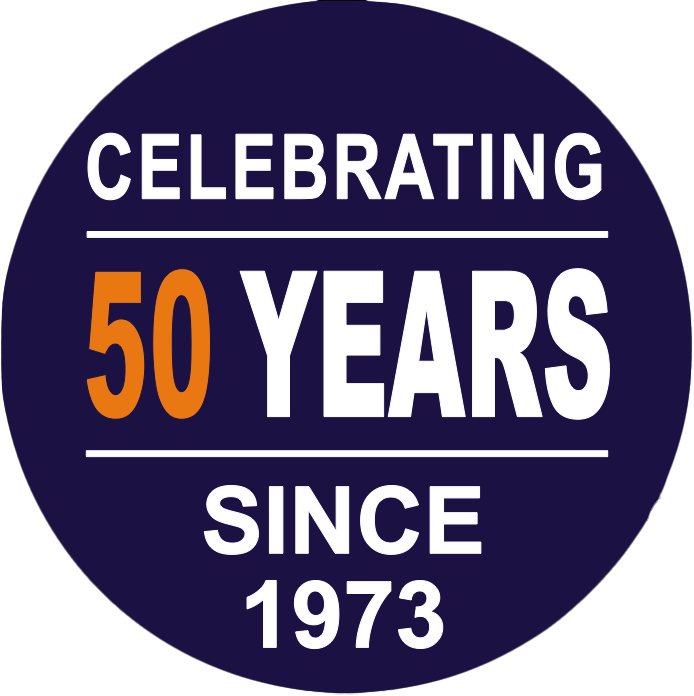What can Flexi trucks bring to your business?
Forklift designers are constantly enhancing the options they offer to suit the changing needs of modern operations. A mainstay of both industrial and commercial operations, forklifts are a ubiquitous sight in warehouses, distribution centres and logistics hubs. They can increase productivity and performance while improving health and safety on-premises. As a result, the design of a forklift truck has a powerful impact on how an operation runs.
In the next sections, we’ll take an in-depth look at some award-winning articulated options from Flexi, designed to optimise operational efficiency and promote the highest levels of safety, reducing the chance of accidents resulting in injuries or damaged inventory. Read on to find out what Flexi forklifts can do for your business.
Flexi forklifts can improve warehouse efficiency and profitability
Flexi’s range of fully articulated forklift trucks has been engineered specifically to enhance storage handling and improve the efficiency of customer order collection in a wide range of operations including e-fulfilment, manufacturing, and logistics.
Flexi fork trucks have been designed to operate in areas where space is limited, like narrow aisles, but also to reach great heights. They have a lift height of 14 metres and can execute tight turn radiuses of 200 degrees.
Effectively, this means that firms using Flexi forklifts create a more space-efficient solution for storage by eliminating any dead aisle space typically required by reach and counterbalance forklifts. or reach forklifts. While it will always depend on the individual building, Flexi forklifts have proven to increase the usable storage space available by between 25 to 50 per cent and mitigate double handling for operations. As a result, this makes warehouses far more efficient and cuts down the costs for pallet storage substantially.
The range includes models capable of different loads from 1.5 to 2.5 tonnes allowing enterprises to find the perfect solution for the goods they handle.
Designed for safety and comfort
The Flexi Digital range of forklifts uses the latest technology and expert design not just to enhance productivity but to increase operator comfort and safety. Every inch of these state-of-the-art forklifts has been meticulously planned from their clear view guards that enhance operator visibility to their unique Hi-Vis guard for driver protection.
The forklifts feature effortless AC control and up to 230 degrees of independent power steering with zero kickback. Using cutting-edge brushless technology that is digitally powered, these solutions are simple for operators to drive and always offer smooth control. Their tyres use elasticated rubber, which reduces driver discomfort but also makes them mobile on any surface.
Built for long-term use
Finally, it’s understood that buying material handling solutions such as pallet trucks and forklift represents a significant investment for enterprises. While many options available are durable and made with robust materials, Flexi has worked to futureproof their articulated forklifts allowing users to keep them in active service for longer.
Flexi’s Digital range has earned a professional reputation for both dependability and lower maintenance costs. It achieved this by ensuring that every Flexi fork truck is fitted with the same superior quality hydraulic components and drive which are always sourced from a supplier in tier one.
For ease of repair, Flexi forklifts are designed with a vast proportion of common parts and components. As a result, both the holding and the provision of spare components is a far easier prospect for the company’s central parts operation. By standardising components and only dealing with suppliers of the highest quality, Flexi can pass on value to its customers in the form of an industry-leading warranty. Receiving a five-year -5000-hour part warranty, users buying a Flexi forklift for their operation can feel safe in the knowledge they are completely covered.
Get in touch with the team today to find out what Flexi trucks can do for your business.



